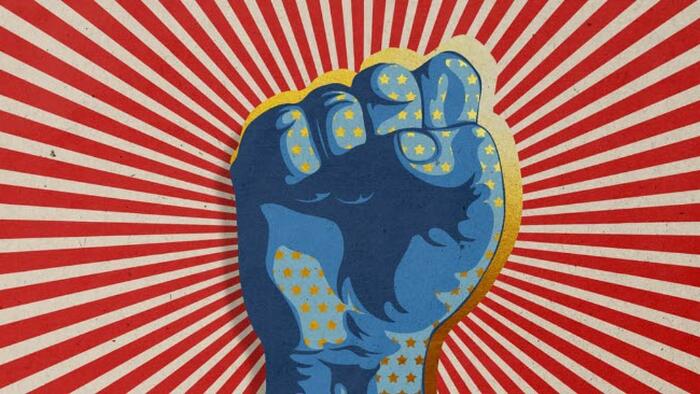
Written by Ovidiu Tanjala via The Mises Institute,
wrote Ludwig von Mises Socialism: an economic and sociological analysis, a small book published in 1922, which showed that economic calculation in a socialist commonwealth is impossible. Of course, Mises assumed that the purpose of an economy, even a socialist one, was to produce goods and services, which determined its success or failure.
Alain Besançon was neither Austrian nor Misesian, but he wrote Anatomy of a Spectrum: The Political Economy of Real Socialism, Also Small book the size of Mises’ own Socialism, in which he also observed that the Soviet economy could not make economic calculations; therefore, the Soviet economy performed poorly, very poorly by Western standards.
The Soviet economy was wasteful and chaotic.
Besançon believed that economic planning induced irrationality in the system.
Terrified managers could not report that the plan had failed, and consequently any subsequent economic planning would be even more divorced from reality than earlier planning.
Both Besançon and Mises knew that socialism could not discover market prices. Both knew that this would lead to widespread corruption. However, Besançon realized that the state not only tolerated but also used the black market for price discovery in economic sectors critical to the regime, such as defense and certain prestigious cultural and sporting activities (Bolshoi theater , gymnastics, eventually hockey, etc.).
However, there is a critical difference between Mises and Besançon. While Mises believed that the goal of the Soviet economy was to produce usable goods and services, Besançon believed the opposite. The Soviet economy, he argued, was never about producing goods and services for consumers, but had other goals.
The Soviet economy existed to keep the Communist Party in power, and that was the only yardstick the party leaders used to evaluate its performance. The “production” of political power was supreme, and everything else was secondary, subordinate to the main goal of the Soviet economy.
Soviet political leaders did not want an economy that produced goods in abundance because abundance separates the citizen from the state. The state would lose its power over its subjects if they became richer. Homo sovieticus—Soviet man—had to depend on the state, barely living from day to day on state-issued ration cards.
If a Soviet manager miraculously managed to produce welfare, despite absurd planning orders and lack of market prices, he could have been punished for not producing what he really needed to produce: state power over ordinary people. Abundance and well-being always were and are the true enemies of socialism; people cannot ignore or forget the power of the state.
Although the Soviet economy is not something people want to review, however, influential elites call on governments to assert power over individuals to restrict consumer choice in order to achieve political goals that benefit those in power . For example, the World Economic Forum declare that people should start eating insects in the name of “sustainability”. Likewise, in the name of fighting climate change, progressive government and corporate elites are trying to force people to to buy electric cars despite their serious drawbacks. Although social networks like Facebook and Twitter are private companies, they have done governments’ bidding in the name of “fighting back”. misinformation” or trying to preserve a narrative that reflects the government message, which is especially seen during government-imposed covid restrictions restricting online speech.
For decades Western governments have been spending more than 45 percent of gross domestic product. Rothbard warned us that every government entity is an island of calculating chaos in the economy. In countries like Finland, France, Germany, Austria and Belgium, the government represents the majority of the economy. In the United States, govt expense it is almost 40 percent of GDP and by 2020, almost half of GDP.
Therefore, we can no longer speak of government-induced islands of computational chaos. In our day, the rule of Western economies is chaos, the exception being the continued existence of market prices. The presence and influence of environmental, social and governance (ESG) movement. in American corporations and especially in the financial and capital markets allows socialists to have great influence over the American economy, and ordinary people are powerless to stop it. Many economic sectors are allowing socialists to gain political power, and the production of real goods and services has become secondary to the promotion of leftist ideology.
Alain Besançon was right about the real goals of socialists, and while both he and Mises understood the inherent dysfunctionality of a socialist economy, Besançon took it a step further by realizing that the chaos that socialism produces works to one’s advantage of those who had the power. The goal of socialists is not a better economy through socialism, but the full establishment of socialist power.
